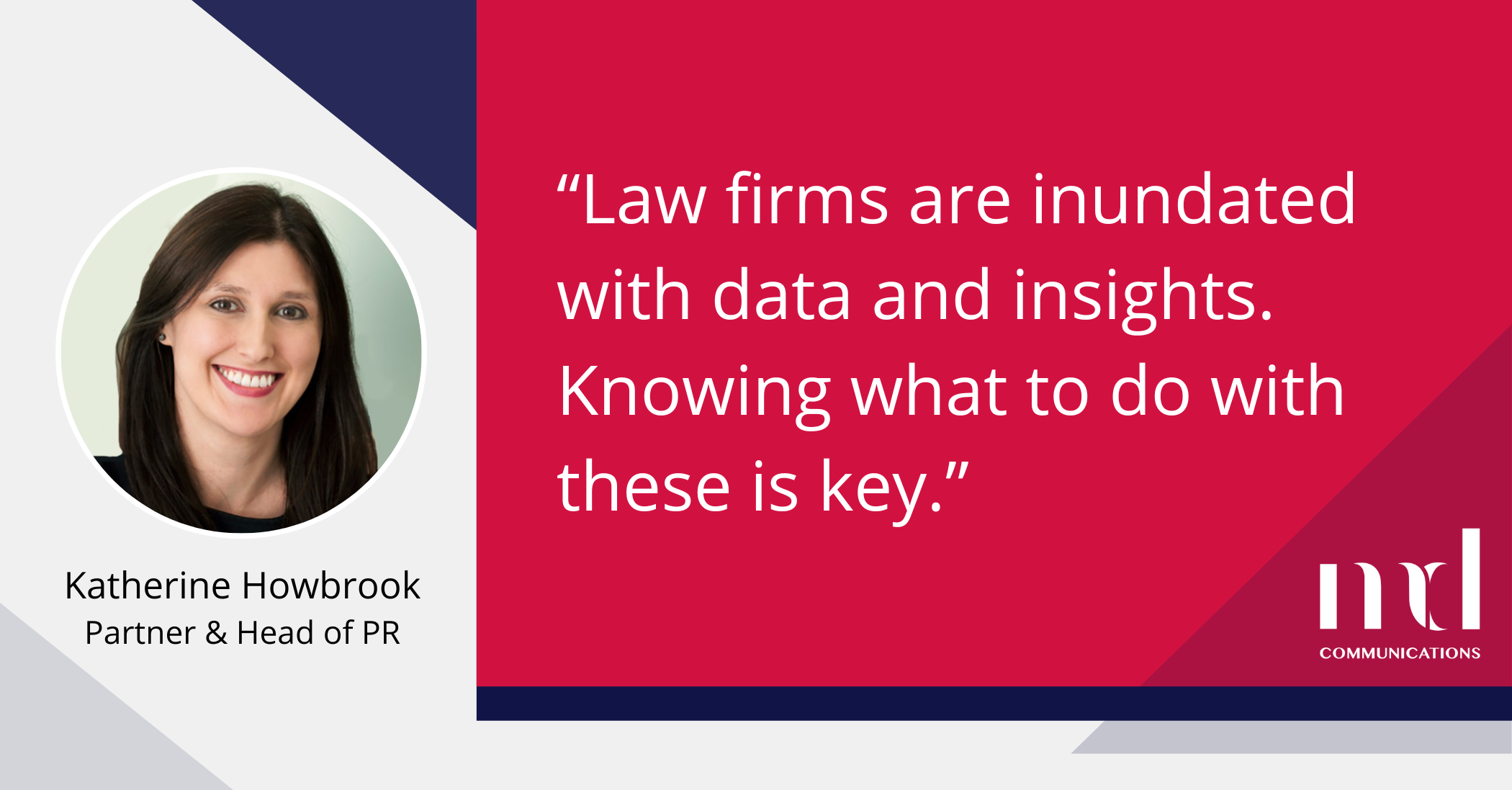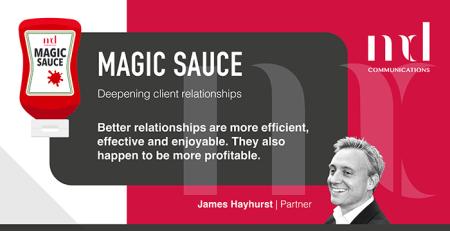Last month at the IBA annual conference in Paris, Partner and Head of PR Katherine Howbrook took part in the ‘BD Superpowers and how to harness them’ panel session to discuss data-driven thought leadership.
Joining Charlotte Ford, Senior Manager of International BD, Strategy & Relationships at Charles Russell Speechlys, Eve Starks, Consultant in Advisory Services at Thomson Reuters Institute and Brian Gribben, Chief Marketing Officer at Arendt & Medernach, Katherine brought her PR expertise to the table to discuss how to use data to build better client relationships. Here Katherine outlines the key takeaways from the insightful discussion.
It was a real pleasure to join the panel to discuss how to better harness the power of the vast amount of data law firms collect. Firms vary widely in their approach, from those leading the way on effectively acting on the insights data can offer and using it to shape decisions, to those who collect it for it to dwell on a database, never to be looked at again.
“Data is the new oil.”
Clive Humby, British mathematician
However, before even looking at the potentially vast amount of raw data, the key priority is to identify what you want to achieve with this information. Many firms are grappling with making sense of the data in the first place, let alone factoring in how to do more with this information.
At Charles Russell Speechlys, Charlotte shared that her priority is to use data-driven insights to target its international business development efforts in her global role to expand its presence.
Analysis is key
Data analysis for its own sake risks wasting vital resources. Firms are inundated with data and insights. Knowing what to do with these is key. Brian Gribben shared that Arendt & Medernach hired a storyteller to interpret the data and tell the partners a coherent story about the vast amount of information the firm had collected from its marketing activity. Translating the data into an actionable narrative has informed ongoing client interactions.
Top-level support behind the importance of data monitoring is crucial. The analysis is only as good as the data. People need to know that consistently and accurately inputting the data is a firmwide priority, incentivising them to take the time to do this properly. This ensures that all of your client relationship interactions are meaningful and thoughtful. Teams reaching out to clients in silos dilutes the ‘one firm’ experience.
Bridging the gap
Coming from a communications and thought leadership background myself, it was great to have the opportunity to highlight the importance of bridging the gap between business development, marketing and communications and using data-driven thought leadership to not only build reputation, but bolster business development efforts.
The trouble is, measuring the impact of thought leadership is notoriously difficult. It’s almost impossible to attribute a piece of thought leadership to a new client signing on the dotted line. However, there’s mounting evidence that the impact of good thought leadership on winning and retaining clients shouldn’t be underestimated.
In a survey of over of 400 decision-makers at global organisations conducted by Grist, 77% agree that good thought leadership would make them consider working with the advisor or solutions provider who produced it. Interestingly, 73% of respondents said that if their own advisor or solutions provider doesn’t produce thought leadership on their priorities, they’ll look at their competitors.
If clients are looking for law firms that are not only legal advisers, but also business partners with in-depth knowledge of the industries they operate in and the challenges they face, law firms need to use high quality thought leadership to cut through the noise and narrow the gap between them and other professional services firms that have stolen a march in the thought leadership space.
Enriching relationships
And let’s not forget client listening – an often-over-looked huge source of data collection that provides insights which can enrich client relationships. Eve Starks outlined the key benefits of a designated programme to firms. A formal structured process and review provides:
- Measurable improvements in client experience
- Demonstrable impact on share of client spending
- Quantifiable gains against industry leaders in peers
- Utilisation of adoptable (and adaptable) tools by staff
British mathematician Clive Humby said that ‘data is the new oil’. We’re inclined to agree – whether that’s internal sources of feedback or external sources that indicate the current client experience or referral likelihood, including referral firms.
How data is shared should inform and empower people across your firm to make the most of the opportunities to engage effectively with their network. This will ensure there are no more random acts of marketing. Instead, everything you do reflects your strategy and what you want to become known for.
While that’s a wrap on my first IBA, if you’d like to hear more about how to use data to drive evidence-based decisions when interacting with prospective and existing clients, keep an eye out for our upcoming events on this topic.












